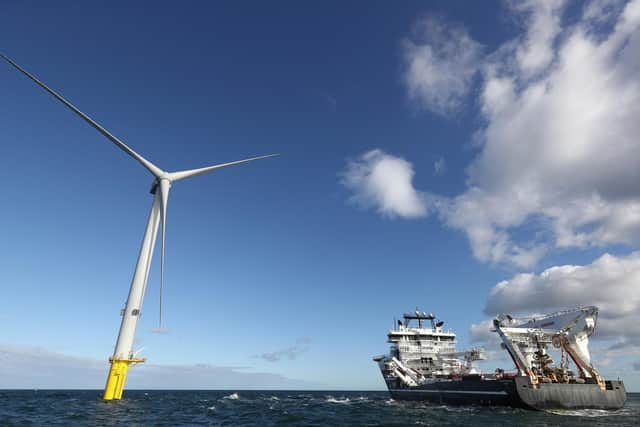Why focusing on the environment is a smart business move - Rashmi Dube
It’s something that should be a big part of any organisation, and yet I feel it has sat in the shadows for years. I wonder if we would still see some of the crises erupting if this was the case.
There has been a lot of conversations around the need for caps on gas for businesses, reflecting the caps that consumers have. The short-term solution may be finding new suppliers. On the other end of the spectrum, there is a surplus of pigs.
Advertisement
Hide AdAdvertisement
Hide AdDemand has decreased from other countries, particularly China, which has meant sale prices are being forced down, costs to the farmer increasing, and the farmers are left holding the pigs with no clear direction of what to do.


Environmental, Social and Governance aspects in particular ought to be at the heart of decision making – and yet it feels like a revolution, and for many organisations yet another transformation that they are faced with.
But this transformation constructs strategy, helps with performance and creates far better results. ESG has constantly been evolving, but we need to get the fundamentals done correctly. Against the backdrop of the increased gas prices, we have returned to looking at wind and solar to help us avoid the darker times.
But what happens when there is a drop in wind like we have seen recently? Jonathan Marshall of Resolution Foundation has said “…that we have not built the system to cope with them [wind turbines]… we have not built enough storage…” (BBC Newsnight).
Advertisement
Hide AdAdvertisement
Hide AdIn essence we don’t have the full foundation built. The prediction from the Business Secretary is that the changes that are taking place will likely come to fruition by 2035.
According to the recent PWC report, Intelligence Survey 2021, the effectiveness of leadership from the executive in respect of ESG has been lacking. They state: “Competing business priorities, reporting standards and leadership commitments hold ESG back, even in companies that prioritise the ESG issue.”
The report goes on to state that of the business executives surveyed, 33 per cent showed a lack of attention and support and 40 per cent failed to balance ESG with growth targets. But what PWC’s report did find is “…the CEOs of companies with formal decarbonisation targets express greater confidence in their organisations’ forecasting abilities.” Having it front and centre will help avoid having to join the party late which inevitably will lead to great expense.
What the various crises are showing is that any sector at any time will, in the next five years, be experiencing great difficulty, with what seems like added complications from stakeholder scrutiny, climate change, and looking at new openings for green energy. The question is what is our purpose, and what can we do if everything was equal and ESG was at the heart of all decisions?
Advertisement
Hide AdAdvertisement
Hide AdESG is not a new concept; it is simply coming of age and demands for high quality, effective reporting, causing businesses and stakeholders (including investors, consumers and employees) to examine an organisation with a microscope.
Given that it not only impacts the environment and society but also other policies such as diversity and inclusion, this topic has graduated from the ’nice to have’ to the ‘urgently required’ for long-term suitability and resilience of business.
If we can focus our time and commitment on ESG, regardless of the size of the organisation, we are likely to find greater results than we ever thought possible.
By Rashmi Dube - Partner – gunnercooke